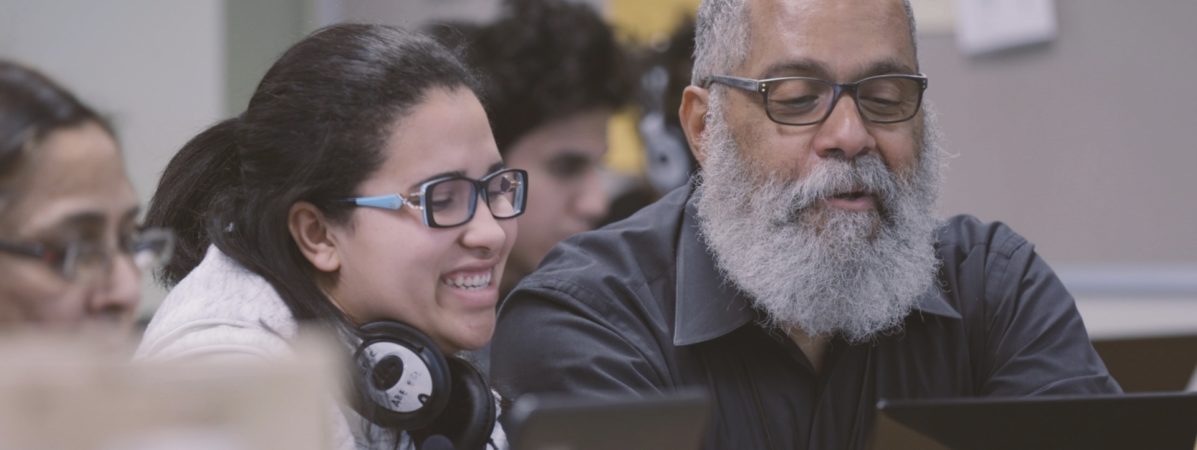
“Flipped” classrooms, where the typical lecture and homework elements of a class are reversed, are used across K-12 and postsecondary education. Yet, as with much of ed-tech, the concept has not yet moved into the adult learning space.
The Integrated Digital English Acceleration (Project I-DEA) program is at the forefront of changing this.
Administered by the Washington State Board for Community and Technical Colleges (SBCTC) and funded by the Gates Foundation, SBCTC’s Project I-DEA, a member of our Digital Promise Adult Learning Beacon Project, uses digital technology to provide “flipped” classrooms for adult English language learners.
For Jodi Ruback, the Project I-DEA Program Administrator, “flipped” classrooms are particularly effective for supporting adult language learners. Having students complete online modules to learn and practice concepts before coming to class means learners can use classroom time to apply and practice what they have learned with the support of instructors and classmates. Research shows that adult learners have a particularly strong need for connection with and encouragement from their teachers and peers. The “flipped” classroom allows for maximum time spent learning with others and fosters community building both in and outside the classroom.
Project I-DEA is founded on the same principle as its model program, Washington’s Integrated Basic Education Skills Training (I-BEST) program. I-BEST challenges the traditional notion that students must move through basic education or remedial courses before they can start working on certificates or degrees. Their teachers work in teams to allow students to work on basic skills and college-level studies at the same time, clearing multiple levels with one leap.
The I-DEA program teaches English language learning (ELL) skills in the context of college and careers to learners who face the largest language gaps. Students quickly learn both English and skills relevant to their lives and careers by studying content at home and practicing with their peers and teachers in the classroom.
Modules are designed in pairs, with a technology skill, grammatical concepts, and a writing focus in each pairing. Math is also in every module. The module pairs can be mixed and matched and cover topics such as time management, study skills, job search and interviews, and health and wellness. Ruback explains that one instructor asks students what they want to study and selects sets of paired modules tied to these learning goals.
Rubacks says that people have told her, “This isn’t ELL,” but she says the results show that it clearly is. Students using the flipped classroom modules are doing markedly better than students in traditional ELL classes. Of the 1,388 students in the last year of their pilot, 56 percent made federal levels gains, and 65 percent made significant gains.
Project I-DEA is not stopping at transforming ELL education in Washington state. They are now working on offering the Project I-DEA modules as a free open education resource (OER) across the nation and even the world.
Their goal is to release the modules on Canvas Commons and other OER repositories by August of 2017. With funding from the Gates Foundation, the staff is currently fine-tuning their videos and setting up plans for national trainings.
We here at the Digital Promise Adult Learning initiative will be proud to let our network know that the I-DEA OER modules are ready for everyone to use with their adult learners. So please sign up for our Spotlight newsletter where we will announce I-DEA’s national release, as well as dates for trainings around the country.